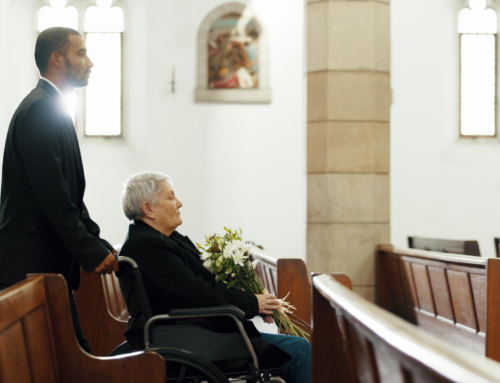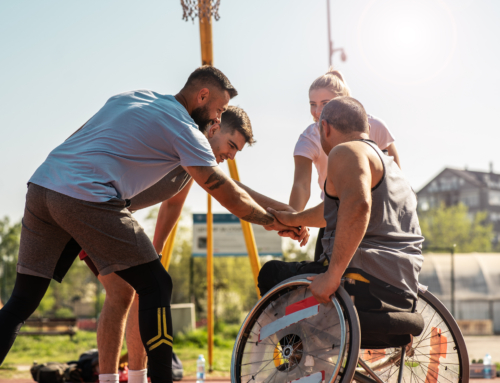In many traditions, candles or lamps offer symbols of hope. The ‘Fanous Ramadan’ lamp, Hanukkah menorah, and Christmas Eve candlelight services are examples. I have always enjoyed candlelight services where we form a circle and sing together while holding lit candles. Because of the flame, potential of dripping hot wax, and my physical challenges, I would struggle to hold my candle without accidentally hurting myself or others.
Thankfully, someone next to me has always been willing to hold out my candle along with theirs as we sing together. These special moments and their symbolism of holding out light, warmth, and hope are beautiful and sacred to me.
I think of this image in my role as Christian Horizons Coordinator of Organizational and Spiritual Life as I connect with people who are grieving. Since COVID-19 began, I have witnessed many kinds of losses that people who use Christian Horizons services and their support teams are dealing with.
We hold out hope
It has been my responsibility and privilege to hold out hope with people who have struggled to hold it on their own. Offering light to one another must not overshadow the real pain that people experience, but small gestures and words of encouragement remind us that grief will not have the last word. Glimmers of hope may also be found in feeling each others’ pain and weeping together. We remind one another that this intensity of grief is not permanent, and that inner strength, resilience, and deeper compassion may develop through the pain we feel.
- We hold out hope with people who miss aspects of their independence such as spontaneously going to a grocery store, coffee shop, or other social establishment.
- We hold out hope with people who miss their workplace or day program routines, in person connections with family and friends, high-fives, and hugs.
- We hold out hope with people who are mourning the loss of a loved one or someone they supported, unable to attend an in-person funeral or other rituals.
We experience grief
Grief can help us to recognize more clearly those aspects of life that are most important to us and the people who have helped us to become who we are.
- The grief that we all experience when we cannot meet with family and friends in person shows the depth of our relationships and the way that we depend on one another to hold out hope for us.
- As we grieve the loss of workplace and day program activities, the need for continuous growth and development comes into sharper focus. We may come to recognize people’s unique interests more clearly and act in hope for a future where they achieve their goals and dreams.
- The deep grief that we experience mourning the loss of a loved one is a beautiful, though painful, testament to the way that person belonged in our life and will continue to belong in our hearts even after their death.
The COVID-19 pandemic has been the cause of immense grief. Yet, we hold out hope for transformation. Geographical distance is no longer a barrier to connect with family or friends and challenges with driving or using public transit may no longer prevent someone from working or participating in a faith community. These societal advancements open the door to all kinds of possibilities for people who experience disability to contribute to their communities in ways that they desire.
I, along with many others, have been exposed to significant grief and loss over the course of COVID-19. But I pray that, as I continue to hold out hope for others, others will hold out hope for me in difficult times. As we act in this shared hope, I am confident that we will not only get through the pandemic but discover new possibilities on the other side.



